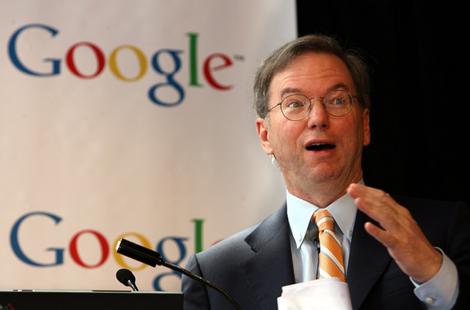 NEWS
NEWS
 NEWS
NEWS
 NEWS
NEWS
A federal jury today handed Google Inc. a victory in a lawsuit filed by Oracle America Inc. that had charged the search giant with violating copyright and infringing patents on Oracle’s Java software.
Oracle had filed the lawsuit in 2010, contending that Google required a license to use the programming language in its Android mobile operating software used in some 80 percent of mobile devices worldwide. Jurors in San Francisco federal court today unanimously rejected Oracle’s claims, including its demand for $9 billion in profits it said Android had produced for Google.
Instead, the jury said Google had made legal “fair use” of the code in Java, one of the world’s most popular programming languages. The six-year legal battle had been closely watched, especially since May 2014. That’s when a federal circuit court of appeals reversed a district court ruling that the structure of the Java Application Programming Interfaces used by Google could not be copyrighted, and sent the fair use issue back to the district court.
The latest ruling essentially restores the status quo for use of the code. Tyler Ochoa, a law professor at the Santa Clara University School of Law, told SiliconANGLE that means that thousands of companies that use Java no longer have to worry about getting sued over using Java in their applications.
“This could still have a chilling effect on smaller companies,” said Ochoa, one of 41 law professors who had asked the U.S. Supreme Court to take on the case after the circuit court’s ruling, which Ochoa called an “aberration.” But he added that the jury decision gives them legal cover and may discourage more lawsuits against them for the same practices Google undertook.
“The main reason Google prevailed is because the case never should have gotten this far in the first place,” Ochoa said. He argued that Google used only Java’s “declaring code,” which essentially says what various functions do, and wrote its own, more original “implementing code.” The U.S. Copyright Act traditionally does not apply to material that that simply describes a function.
But the case ended up turning on the fair use issue because the circuit court essentially said APIs can be copyrighted, a view that many disagree with. Given the circuit court’s decision, that left Google only a fair use argument to make–one that has been called the “Pretty Woman” tactic after a case involving 2 Live Crew’s use of Ray Orbison’s classic song.
Fair use involves brief use of material without legal need for permission or payment if it’s used for “transformative” purposes such as a parody or a news story. At issue in the case was 11,000 of the 13 million lines of code in Android.
This case involved some high-profile testimony, including from former Google Chief Executive Officer Eric Schmidt (pictured), now chairman of parent company Alphabet Inc. He had helped develop and promote Java while an executive at Java creator Sun Microsystems, which Oracle bought in 2010.
Schmidt testified that he thought Google was allowed to use the APIs, which help developers write applications that run on multiple software systems, without a license, because Google was using substantially its own code.
If Oracle had won, it would have been of the largest U.S. jury verdicts ever. The company claimed Google had made some $21 billion in profits from Android.
Oracle said it would appeal. That means the case isn’t completely over, and could even go the other way if it goes to the circuit court again. Smartphone patent expert Florian Mueller, who has been a consultant to Oracle, wrote today that he believes Oracle will prevail on an appeal.
But for the time being, software developers are free to do what they’ve been doing for years.
Support our mission to keep content open and free by engaging with theCUBE community. Join theCUBE’s Alumni Trust Network, where technology leaders connect, share intelligence and create opportunities.
Founded by tech visionaries John Furrier and Dave Vellante, SiliconANGLE Media has built a dynamic ecosystem of industry-leading digital media brands that reach 15+ million elite tech professionals. Our new proprietary theCUBE AI Video Cloud is breaking ground in audience interaction, leveraging theCUBEai.com neural network to help technology companies make data-driven decisions and stay at the forefront of industry conversations.